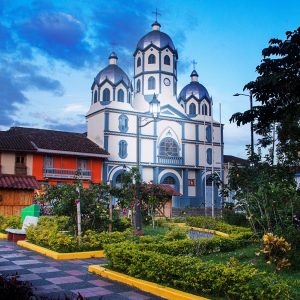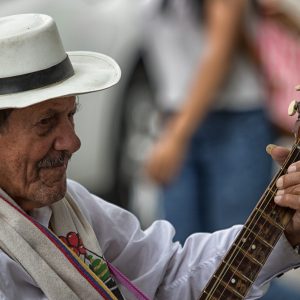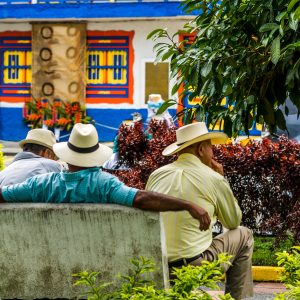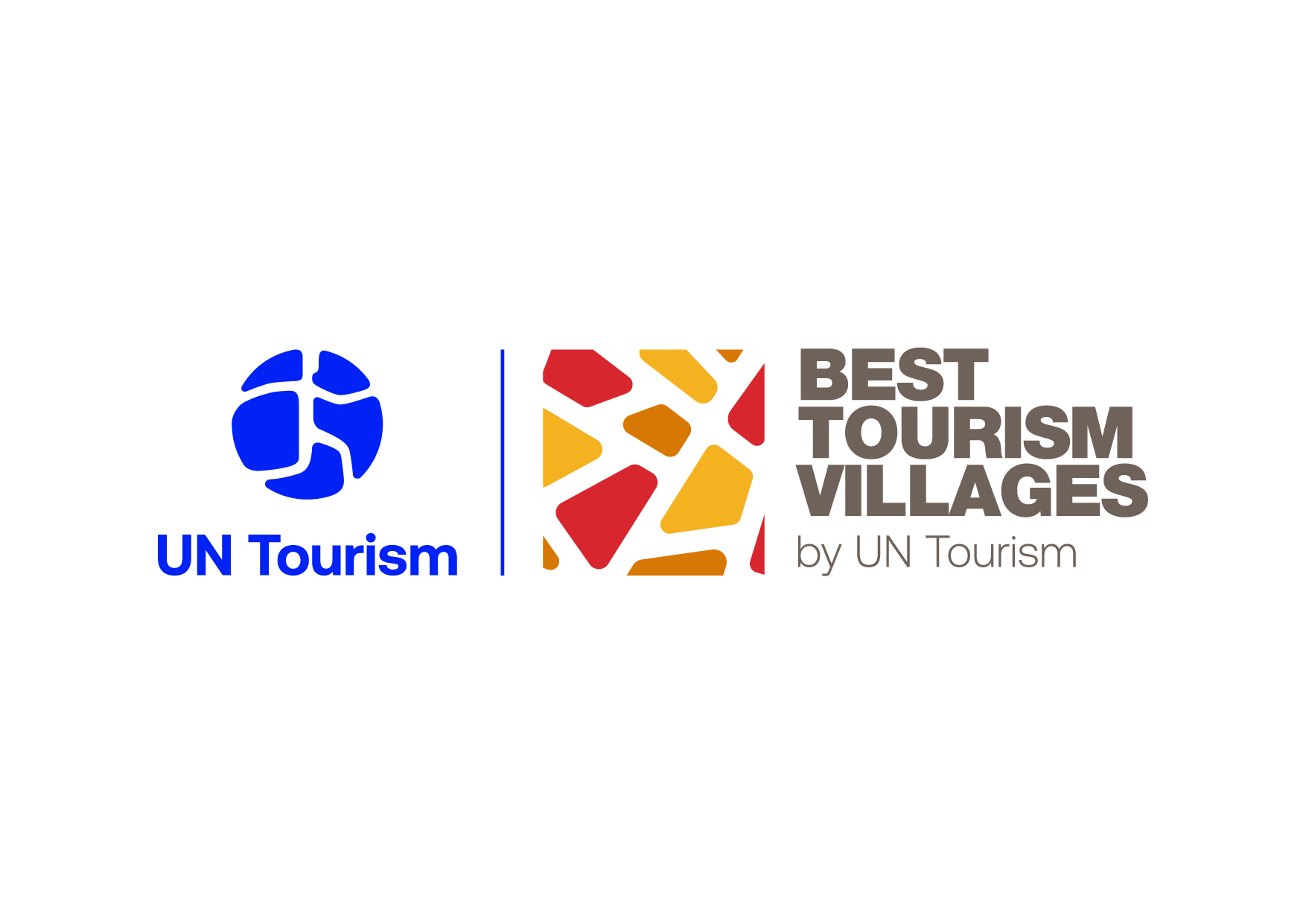Filandia is a municipality located in the Quindío Department and is one of the 51 municipalities within the Coffee Cultural Landscape, designated as a UNESCO World Heritage site since 2011. This fact makes Filandia a destination with a unique distinction, representing the attributes of the Coffee Cultural Landscape.
Basket weaving of Filandia (crafts made from natural fibers) is recognized as an intangible cultural heritage through a departmental ordinance. It encompasses practices, uses, representations, knowledge, techniques, and cultural spaces that generate feelings of identity and establish a connection with the collective memory of communities. This artisanal work has a history spanning over a hundred years and is currently in its fifth generation.
The Festival “Camino del Quindio” brings together different sectors to promote and preserve local traditions, heritage, and identity while involving the participation of its residents. The festival features a grand parade where various historical epochs such as pre-Columbian times, discovery and subjugation, colonialism and independence, and the history of the coffee cultural landscape are represented through allegories.
Filandia is a national benchmark for being certified as a Sustainable Tourism Destination since 2018. It achieved first place in Tourism Quality in 2019, and in the same year and the following year, it ranked first in Tourism Competitiveness.
The landscape of Filandia boasts a wide variety of green tones, along with the wonder of its fauna and flora. The Barbas Bremen Reserve is classified as the fifth-largest ecosystem in the country. This area is protected by the Regional Autonomous Corporation of Quindío and the municipality of Filandia. It is a highly important ecosystem located on the borders of the Quindío and Risaralda departments and serves as a habitat for emblematic species such as the Howler Monkey and the Cauca Guan.
HIGHLIGHTS
-

Immersive tourism routes
The tourism routes developed in the village are creative and innovative because they emphasize the value of rural traditions as a tourist experience through experiential thematic routes, allowing visitors and tourists to interact with local farmers and participate in their daily activities. The Community Rural Tourism Route “Amor al Campo” (Love for the Countryside) stands out as a journey that promotes responsible consumption through the offering of local products and advocates for the protection of the cultural and natural heritage.
Other thematic routes include the Flower Route, Howler Monkey Route, and Panela Route, each offering unique experiences related to the local culture and environment.
-

Policies for environmental sustainability
Policies such as the “Tourism Sustainability System” defined based on the NTS 001-1 for tourist destinations, and the various regulations established to protect the natural and cultural heritage of the municipality, make Filandia a reference point for other municipalities, universities, and organizations that visit it regularly, seeking to learn from and replicate these best practices in other destinations.
The village has established for example the “Municipal System of Protected Areas” in which 197 properties have registered. These properties encompass a conservation area of 1,045 hectares (Ha). The property owners receive a property tax exemption for complying with Agreement 029 of December 24, 2020. Throughout the year, monitoring and control are conducted in the protected area to ensure that no interventions are undertaken by the property owners.
-

Local business empowerment
The Municipality of Filandia has designed policies aimed at benefiting and encouraging local development.
New businesses and commercial establishments that are physically established within the jurisdiction of the Municipality of Filandia and register with the Treasury Department, provided that their corporate purpose involves industrial, commercial, and service activities and they generate more than five direct permanent jobs, are granted a tax exemption concerning the industry and commerce tax.
Through administrative actions, local fairs have been established to support entrepreneurs who do not have physical commercial spaces. The livestock fair has been institutionalized, and farmer’s markets have been organized with the participation of rural entrepreneurs. Additionally, a business pavilion has been created within the Mirador Ecopark to support local associative groups.

